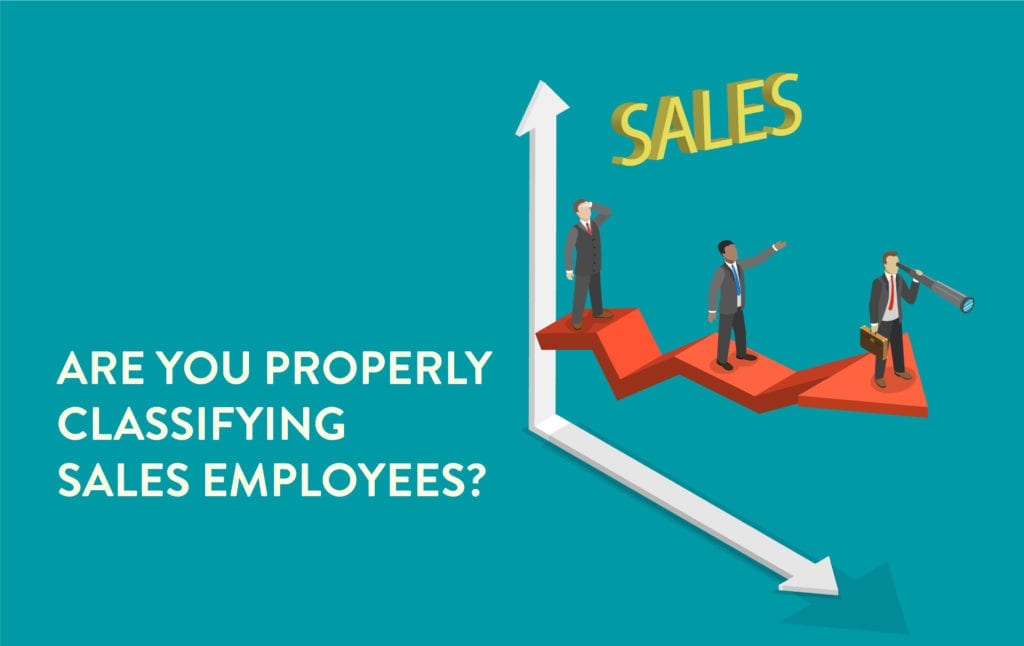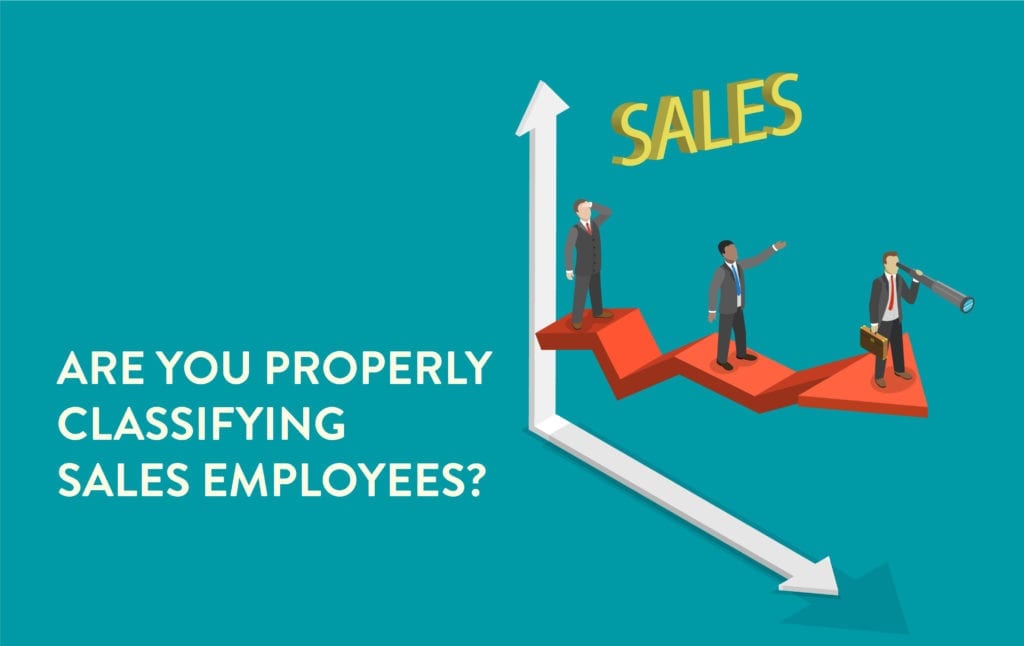
The Fair Labor Standards Act is the federal law that governs overtime, including exemption from overtime. This exemption is most frequently used for salaried executive, administrative and professional employees — also called “white-collar employees.”
To be exempt from overtime, white-collar employees must receive no less than a weekly salary of $684 (starting Jan. 1, 2020) and perform the job duties specific to their role as defined by the FLSA. Employees who fulfill the salary and job duties tests do not have to be paid overtime when they work more than 40 hours per week.
The FLSA also has an exemption for outside sales employees.
Unlike the white-collar exemption that imposes salary and job duties tests, the outside sales exemption requires only a job duties test. This means that as long as outside salespeople perform the FLSA-mandated job duties, they do not have to be paid overtime for hours worked over 40 in a workweek.
To be eligible for the outside sales exemption:
- The employee’s main duty must be making sales or acquiring orders or contracts for services or the use of facilities.
- The employee must customarily and regularly perform the main duty away from the employer’s place of business.
Item no. 2 is the reason many salespeople are disqualified from being exempt. Basically, to be exempt, the employees have to hit the road to make sales — instead of operating from a fixed area, such as their homes or offices.
Note that unlike white-collar employees, who must receive at least the FLSA’s minimum salary requirement, exempt outside salespeople don’t even qualify for minimum wage.
According to the website of law firm Foley & Lardner, “an employer who does not pay a penny to an outside salesperson week after week, regardless of the number of hours worked, will not violate the FLSA.” At a glance, this sounds untenable. However, per Foley & Lardner, statutory history suggests that Congress did not establish minimum wage or salary requirements for outside salespeople because they are usually generously compensated.
Are outside salespeople ever entitled to overtime?
Case law indicates that if outside sales employees spend much of their time doing non-sales work, they may be eligible for overtime. This is demonstrated in the case of Sydney v. Time Warner Entertainment-Advance/Newhouse Partnership. The plaintiffs were classified by their employer, Time Warner Cable, as exempt territory sales employees. They argued that they should have been classified as nonexempt because they spent much of their time doing installation and troubleshooting work.
The district court dismissed the plaintiffs’ claims. But the appeals court reversed the district court’s decision, noting that the plaintiffs’ claim of spending five to 10 hours per day on installation and troubleshooting work instead of sales could mean that they were nonexempt instead of exempt.
This case highlights the significance of accurately classifying sales employees, including inside salespeople.
Inside salespeople are typically nonexempt and therefore eligible for minimum wage and overtime. However, under the FLSA’s “retail or service establishment” exemption, an inside salesperson may be exempt.
Copyright 2020









